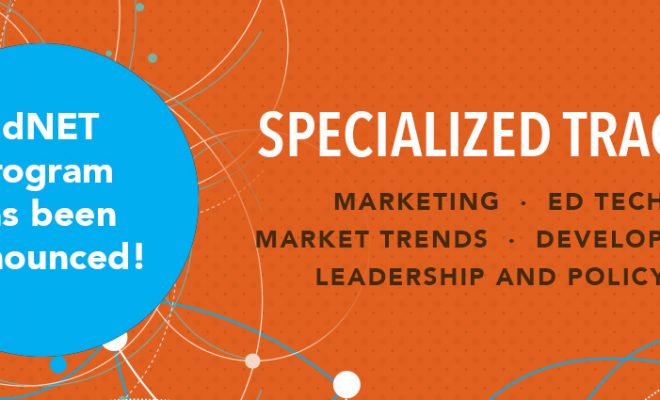What You Need to Know: 5 Ideologies of Educational Philosophy
In today’s society many believe in ideologies and use these beliefs to govern their actions. Just as important as ideologies are to society, education also benefits from incorporating them into educational philosophy. In this article five ideologies of educational philosophy will be observed including Nationalism, Ethno-nationalism, Liberalism, Conservatism, and Marxism.
Nationalism
Nationalism is a national spirit, the love of a country, and the emotional ties to the interests of a nation and the symbols that represent it. The United States, rather than having a national educational system, has 50 state school systems that work together and use similar methods. Nationalism began to be established in the 19th century. Its effects on education were studied by Isaac Kandel and Edward Reisner, who identified three primary themes reflected in the curriculum. The first is that all nations have a history. The combination of the nation’s history and myths creates a nation’s collective memory. The collective memory evokes the same response throughout the nation’s public. For example, when the national anthem is played in the United States, the response evoked is almost universally that of profound respect, indicated by standing, removing one’s hat, and placing the right hand over the heart.
The second theme is helping people recognize that they are unique individuals, different from others within the nation. Teaching each individual that his or her voice counts and demonstrating this within the political system is evidence of nationalism.
Finally, nationalism maintains a theme of space and time. Nationalism allows people to identify with a particular territory that has borders, a name, a capital, and a relatively common culture in most instances. In America, this theme is demonstrated in many of our patriotic songs, including “America the Beautiful” and “This Land Is Your Land.” Demonstrating their nationalism, Americans rally to defend the themes in these lyrics. Nationalism is reflected in education as the nation looks to pass on the cultural heritage, to develop patriotism and loyalty to a nation. It also teaches and instills the common etiquette required at national ceremonies and creates a collective consciousness and awareness toward the nation as a whole. Furthermore, a national identity is constructed when a common language is adopted and patriotism is demonstrated.
A specific form of nationalism unique to the United States is known as American exceptionalism. The achievements and dominance of the United States in the global arena show that it is an exceptional country with a manifest destiny. American schools are agencies for instilling this sense of national pride, national identity, and loyalty. Schools are also viewed as unique institutions that are established to educate the future generations of an exceptional population.
Ethno-nationalism
Ethno-nationalism has some similarities to nationalism, but is actually loyalty to a particular ethnic or racial group rather than to a nation. In the multiethnic environment of the United States, however, ethno-nationalism may cause relative division between various ethnic or racial groups. Certain groups may believe that, due to their common ethnic or racial origin, members have the same ancestors and can be regarded as “relatives.” Examples of ethno-nationalism include the differentiation between the Gujarat and Punjab tribes of India, Croatians and Bosnians of the former state of Yugoslavia (now divided into several countries) and the Hutus and Tutsis of Rwanda, where ethno-nationalism had devastating consequences for part of the national population.
An ethno-nationalist education not only creates resistance to cultural and educational imposition by other groups; it also uses it positively to preserve and extend the particular ethnic group’s identifying characteristics. One way that ethno-nationalism is preserved in education is to use the ethnic “mother tongue” rather than the official national language in the classroom. Another way is to include the ethnic group’s literature, history, and traditions in the curriculum.
Liberalism
Liberalism is the ideology that all people should enjoy the greatest possible individual freedom and that it should be guaranteed by due process of law. Liberalists are known to be open to change. They believe in progress and oppose any restrictions on individual liberties. They believe that this liberation of human rights will lead to progress. The key elements of liberalism include the liberal concepts around property and the economy, rationality and the power of reason, secularism, individualism, progress, representative political institutions, and education for general citizenship.
The liberalist conception of property and the government is the belief that government should not interfere with business transactions. Liberalists believe that we should have the liberty to compete in the world of business and acquire property as we are able. Also, employers should have the right to hire and fire employees at their discretion, and investors should have the right to invest and profit in any manner they please. While liberalists agree on these concepts, they disagree on the extent to which the economy should be regulated. Liberalism also assumes that human beings have rationality and the power of reasoning. Liberalists believe that most people can be reasonable, and that teachers need to use teaching methods that build and support the ability to rationalize and use their intelligence.
Secularism is belief in the separation of church and state. Although secularists might subscribe to a personal religion, they believe that religion is a private matter and should be completely separate from a public education. The belief that individuals retain inherent human rights that the social order cannot give or take away is a branch of secularism known as individualism. Secularists believe in the need for a commonly held social agreement for political and educational decisions. Secularists tend to support progressive and representative political institutions, recognizing that the state needs power to effect the decisions of the majority.
Finally, secularists believe that we should educate everyone equally and in preparation to becoming a political leader. Because our leaders are elected, they advocate an education that provides a general knowledge of the political system and the skills to make informed decisions on which candidate they should elect.
Conservatism
The opposite of liberalism is conservatism. Conservatism is the belief that institutions should function according to their intended original purpose and that any concepts that have not been maintained should be restored. Certain core principles shape the beliefs of a conservative, and conservatives believe these core principles come from a higher power. The first core principle is that all humans are imperfect by nature, and there is no way to create a perfect society on earth. Second, the past is the basis for our social sensitivity and human relationships. Finally, tradition provides cohesion and stability for the society and culture.
A conservative education preserves the traditional curriculum, aiming to transmit information to the students as a means of bringing them into an already established culture. Conservatists are wary of individualism and change and foster assimilation and acceptance into society. They believe the primary role of education is academics and that schools should not assume nonacademic, custodial, therapeutic, and social functions. Such functions are believed to weaken education.
Marxism
Marxism is an ideological and political movement first proposed by Karl Marx, a 19th-century philosopher. Marx held that the class system conflicted with the social, political, and educational realms. Logically and intelligently questioning the economic consequences of class hierarchy gives a better understanding of the world. Marxism calls for an education that creates a critical consciousness in students. It believes dominant classes control schools and use them to socially control the oppressed class. Marxism relies on content and methods that contribute to a person’s intellectual and physical development.
Each ideology presents a different belief and impact on education. Which ideology do you believe and incorporate in your classroom?






